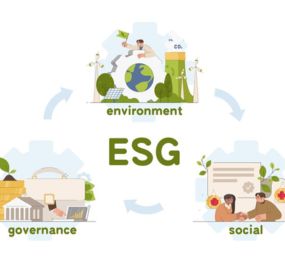Climate change poses a significant threat to Africa's development and well-being. Rising temperatures, extreme weather events, and changes in rainfall patterns are already impacting agriculture, water resources, and human health. However, by integrating environmental, social, and governance (ESG) principles into development strategies, Africa can build resilience and prepare for the challenges ahead.
The Importance of ESG for Climate Resilience
- Environmental Sustainability: Addressing environmental issues such as deforestation, pollution, and unsustainable land use is crucial for climate resilience. ESG practices promote responsible resource management and reduce vulnerability to climate-related risks.
- Social Equity: Climate change disproportionately affects vulnerable communities. By prioritizing social equity, ESG initiatives can ensure that the most vulnerable populations have access to resources and support needed to adapt to climate change.
- Good Governance: Strong governance is essential for effective climate action. Transparent and accountable institutions are better equipped to implement policies and allocate resources for climate resilience.
Strategies for Building Climate Resilience through ESG
- Renewable Energy: Investing in renewable energy sources such as solar, wind, and hydropower can reduce dependence on fossil fuels and mitigate greenhouse gas emissions.
- Sustainable Agriculture: Promoting sustainable agriculture practices, including agroforestry, climate-smart agriculture, and soil conservation, can help farmers adapt to changing weather patterns and ensure food security.
- Disaster Risk Reduction: Investing in disaster risk reduction measures, such as early warning systems, infrastructure upgrades, and community-based preparedness plans, can minimize the impacts of extreme weather events.
- Water Resource Management: Implementing sustainable water management practices, including rainwater harvesting, water conservation, and pollution control, can ensure adequate water supplies for agriculture, industry, and domestic use.
- Climate-Smart Infrastructure: Designing and building infrastructure, such as roads, bridges, and buildings, to be resilient to climate change can reduce economic losses and improve long-term sustainability.
- Community Engagement: Engaging with communities to raise awareness of climate change and promote climate-resilient practices can empower individuals and strengthen local resilience.
The Road Ahead
Building climate resilience in Africa requires a comprehensive and integrated approach that addresses both the environmental and social dimensions of climate change. By prioritizing ESG principles and implementing innovative solutions, African countries can create a more sustainable and resilient future for their populations.
To register or learn more about the Forum please check here: https://www.leadventgrp.com/events/esg-and-climate-africa-summit/details
For more information and group participation, contact us: [email protected]
















